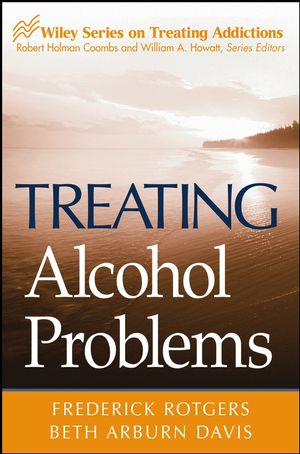Treating Alcohol ProblemsISBN: 978-0-471-49432-4
Paperback
176 pages
April 2006
 This is a Print-on-Demand title. It will be printed specifically to fill your order. Please allow an additional 10-15 days delivery time. The book is not returnable.
|
||||||
Part of the Wiley Series on Treating Addictions, Treating Alcohol Problems offers the latest evidence-based guidance on effectively diagnosing and treating the full spectrum of problems related to drinking. Whether you are an addictions counselor, mental health professional, or physician, you can use this all-in-one guide as a stepping-stone to seek out and develop better treatment options for your clients.
Bringing treatment approaches into harmony with scientific findings, Treating Alcohol Problems summarizes methods proven to be successful. Written in a clear and accessible style, the text focuses on presenting the information most directly useful for helping clients. This handy guide is ideal for training and continuing education, as a refresher for seasoned professionals, and as a useful primer for all who come into contact with individuals suffering from alcohol abuse.
Coverage includes:
- Conceptual foundations-defining alcohol problems
- Identifying alcohol problems
- Assessment and treatment planning
- Treatment tools, programs, and theories
- When and how clients should be discharged to aftercare
- Increasing recovery success
- Culture, coaching, and change-moving beyond alcohol problems
- Finding and getting the best out of professional resources
Supporting this expert coverage, the reader-friendly series format features quizzes, checklists, diagrams, "Research Frontier" boxes, problem-solving scenarios, "Dos and Don'ts" lists, "Test Yourself" questions, suggested resources, and more. These tools help you reinforce your understanding and integrate this knowledge into your practice. In addition, a thorough bibliography and appendix provide lists of contacts for self-help groups, residential and outpatient treatment programs, support groups, Web sites, and reading material.
Treating Alcohol Problems is an essential resource for mental health professionals, as well as an indispensable study guide for students in psychology and social services courses.



